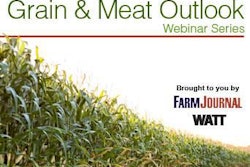The U.S. Environmental Protection Agency (EPA) on November 15 proposed its 2014 Renewable Fuel Standard (RFS), which calls for a reduction in the mandated amounts of corn used for ethanol production in the United States. The proposed new standards are a welcome step for the poultry industry, but until the RFS is eliminated, a true solution to problems with high poultry feed costs will not be found, industry groups say.
The 2014 mandate proposes a range of 15 billion to 15.52 billion gallons of biofuels to be added to the U.S. fuel supply, with a recommended target of 15.21 billion gallons within that range. If the RFS becomes law, the target number would be a reduction of nearly 3 billion gallons when compared to the earlier standards.
“This is long overdue,” said Joel Brandenberger, president of the National Turkey Federation. “The Renewable Fuel Standard has been affecting our members since the first RFS legislation was passed in 2005. It has disrupted certainties in feed supplies. It has caused swings in availabilities in feed, and obviously as a result of that, the pricing of feed. … We really do appreciate EPA and the administration, but we agree that this is a short-term breather, and that a permanent solution is still needed from Congress.”
That permanent solution, National Chicken Council President Mike Brown said, is to completely repeal the RFS. “EPA’s announcement today is a a good and welcome first step, but ultimately Congress must still act,” said Brown. “Congressional action to repeal the RFS remains the most viable pathway to allow all users of corn have equal standing in the marketplace.”
According to Brown, corn comprises nearly 70 percent of the ingredients of feed given to chickens, and since the RFS was more aggressively increased in 2007, rising corn feed prices have affected both poultry producers and consumers. He estimated that for poultry producers, average annual feed costs have skyrocketed $8.8 billion.
Developed with input from the U.S. Department of Energy and U.S. Department of Agriculture, the EPA’s RFS proposal seeks public input on annual volume requirements for renewable fuels in all motor vehicle gasoline and diesel produced or imported by the United States in 2014. In a separate action on November 15, the EPA is also began seeking comment on petitions for a waiver of the renewable fuel standards that would apply in 2014. The EPA expects that a determination on the substance of the petitions will be issued at the same time that EPA issues a final rule establishing the 2014 RFS.











